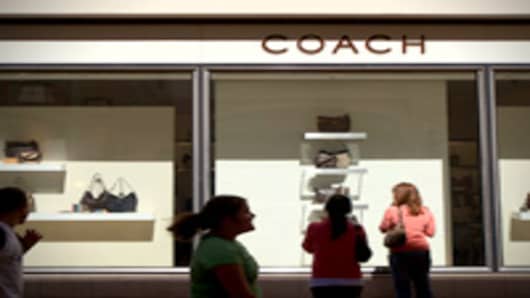At this stage of the recovery, what the economy needs is for people with money to be spending and investing. The wealthy are often the “first in and first out” of recessions, taking the initial risk and seeing the earliest signs of light.
But today, rather than confident capitalists, we have paralyzed plutocrats.
The past few days have revealed a rapid decline in the spending and investing confidence of the wealthy. This morning's UBS earnings call highlighted similar trends at wealth-management firms and private banks around the world, where wealthy clients are hoarding cash, shunning stocks and running from risk.
One of the hottest corners of the wealth-management business today is gold vaults – hardly an encouraging sign.
Spectrem Group’s latest Millionaire Confidence Index – which measures millionaire’s economic and market outlook – showed its lowest reading in nine months and is creeping back toward bearish territory.
The rich are especially worried about Europe. Nearly one in four millionaires surveyed are avoiding individual stocks and mutual funds with a global exposure, and more than 18 percent say they are avoiding fixed-income products from other countries.
But they are also worried about the U.S. economy, the fiscal cliff, government debt and the prospects for their own companies.
“The drops in millionaire confidence are particularly disturbing because generally millionaire households are more positive about economic conditions than others,” said Catherine McBreen of Spectrem. “The biggest concerns for investors when reviewing their own household’s outlook were the economy and company health.”
The paralyzed plutocracy also threatens consumer spending. The top 5 percent of earners account for more than a third of consumer outlays and their spending is highly discretionary and volatile.
Disappointing earnings at Coach today, along with falling shares of Tiffany and Saks , suggests that aspirational spenders as well as the affluent and genuinely wealthy are keeping their wallets closed.
The Thomson Reuters/University of Michigan Survey of Consumers showed confidence index among those who make more than $75,000 annually has fallen 20 percent since last year.
What would it take to lift the wealthy from their paralysis? Basically, a robust stock rally. And for that to happen we need a grand solution in Europe, a decline in unemployment, removal of the fiscal cliff and decrease in government debt.
In other words, don’t count on it. The wealthy, rather than leading the recovery, may be dragging it down.
-By CNBC's Robert Frank
Follow Robert Frank on Twitter: @robtfrank



